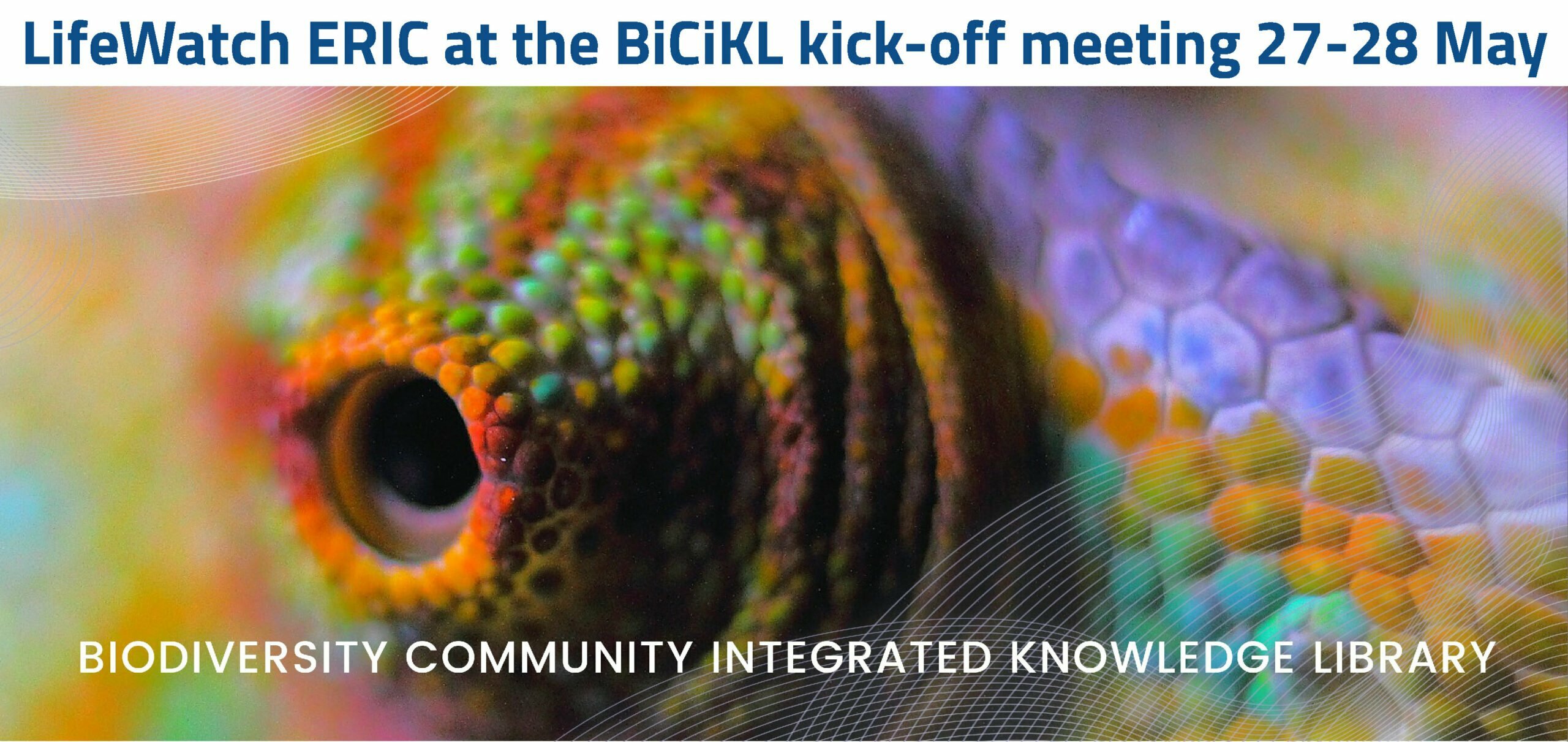
The kick-off meeting for the Biodiversity Community Integrated Knowledge Library (BiCIKL) took place last week on 27-28 May! LifeWatch ERIC is proud to be one of the fourteen official partners of this Horizon 2020 project,* contributing to the establishment of open science practices in the biodiversity domain as it follows its own mission to become a worldwide provider of content and services for this research community.
But what is BiCIKL?
BiCIKL is an EU-funded project coordinated by Pensoft that aims to unite key European and international research infrastructures across ten countries in their quest to facilitate open science and fair data practices in the biodiversity scientific community. Its four key products have been identified as: a community equipped with tools for searching and accessing FAIR (findable, accessible, interoperable, and reusable) interlinked data; an interlinked corpora of knowledge for biodiversity and related research domains; automated tools and workflows for data liberation and FAIRisation from literature; and semantic-based journal production workflows for publication and reuse of FAIR biodiversity data.
What exactly does it do?
BiCIKL plans to build a Biodiversity Knowledge Hub, providing access to data, associated tools and services at each stage and along the entire research cycle. Speaking technically, it will focus on harvesting, liberating, linking and reusing subarticle level data literature (specimens, material citations, samples, sequences, taxonomic names, taxonomic treatments, figures, tables, etc.), whether PDF- or XML-based. It will provide seamless linking and usage tracking of data along the line: specimens → sequences → species → analytics → publications → biodiversity knowledge graph → re-use.
What role does LifeWatch ERIC play?
LifeWatch ERIC, which already carries out specialised work in the areas of semantics and usage tracking, will be key in helping BiCIKL develop the methods, tools and workflows required for the realisation of BiCIKL goals. Its two main tasks will be to analyse the technical requirement of users and implement the Biodiversity Knowledge Hub (BiKH). It will participate in testing and streamlining interoperability and the alignment of findability, reuse and accessibility. Furthermore, LifeWatch ERIC will contribute to defining and implementing the necessary operational framework, as well as identifying BiKH components and translating the functional diagramme and operational framework into an educational cloud.
BiCIKL’s website is currently under construction, but you can follow its activities on Twitter.
*grant agreement No. 101007492, duration May 2021-2024